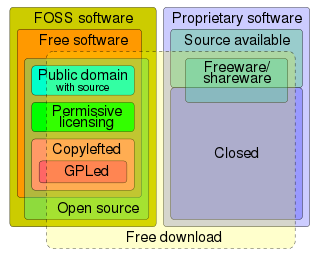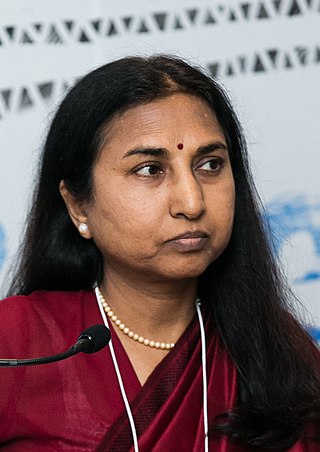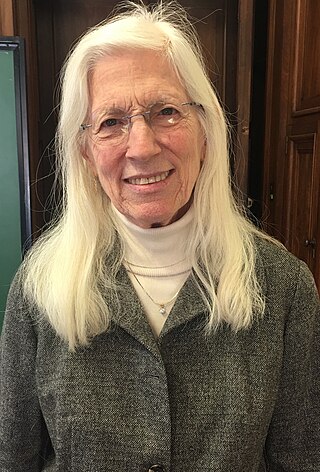
An end-user license agreement or EULA is a legal contract between a software supplier and a customer or end-user.
Collective bargaining is a process of negotiation between employers and a group of employees aimed at agreements to regulate working salaries, working conditions, benefits, and other aspects of workers' compensation and rights for workers. The interests of the employees are commonly presented by representatives of a trade union to which the employees belong. A collective agreement reached by these negotiations functions as a labour contract between an employer and one or more unions, and typically establishes terms regarding wage scales, working hours, training, health and safety, overtime, grievance mechanisms, and rights to participate in workplace or company affairs. Such agreements can also include 'productivity bargaining' in which workers agree to changes to working practices in return for higher pay or greater job security.

A software license is a legal instrument governing the use or redistribution of software.
Terms of service are the legal agreements between a service provider and a person who wants to use that service. The person must agree to abide by the terms of service in order to use the offered service. Terms of service can also be merely a disclaimer, especially regarding the use of websites. Vague language and lengthy sentences used in these terms of service have caused concerns about customer privacy and raised public awareness in many ways.
Shrinkwrap contracts or shrinkwrap licenses are boilerplate contracts packaged with products; use of the product is deemed acceptance of the contract.

The New York University School of Law is the law school of New York University, a private research university in New York City.

Martin Lipton is an American lawyer, a founding partner of the law firm of Wachtell, Lipton, Rosen & Katz specializing in advising on mergers and acquisitions and matters affecting corporate policy and strategy. From 1958–1978 he taught courses on Federal Regulation of Securities and Corporation Law as a lecturer and adjunct professor of law at New York University School of Law.

Bina Agarwal is an Indian development economist and Professor of Development Economics and Environment at the Global Development Institute at The University of Manchester. She has written extensively on land, livelihoods and property rights; environment and development; the political economy of gender; poverty and inequality; legal change; and agriculture and technological transformation.
Sharyn O’Halloran is the Strategic Academic Leadership Initiative Professor of Political Economy at Trinity College Dublin and Trinity Professorial Fellow. In 2006 she was named the George Blumenthal Professor of Political Economics and International and Public Affairs at Columbia University in New York City., where she served as the Senior Vice Dean and Chief Academic Officer at the School of Professional Studies at Columbia University in New York City.[1] A political scientist and economist by training, O’Halloran has written extensively on issues related to the political economy of international trade and finance, regulation and institutional reform, economic growth and democratic transitions, and the political representation of minorities.

Margaret Jane Radin is the Henry King Ransom Professor of Law, emerita, at the University of Michigan Law School by vocation, and a flutist by avocation. Radin has held law faculty positions at University of Toronto, University of Michigan, Stanford University, University of Southern California, and University of Oregon, and has been a faculty visitor at Harvard University, Princeton University, University of California at Berkeley, and New York University. Radin's best known scholarly work explores the basis and limits of property rights and contractual obligation. She has also contributed significantly to feminist legal theory, legal and political philosophy, and the evolution of law in the digital world. At the same time, she has continued to perform and study music.
Information technology law, also known as information, communication and technology law or cyberlaw, concerns the juridical regulation of information technology, its possibilities and the consequences of its use, including computing, software coding, artificial intelligence, the internet and virtual worlds. The ICT field of law comprises elements of various branches of law, originating under various acts or statutes of parliaments, the common and continental law and international law. Some important areas it covers are information and data, communication, and information technology, both software and hardware and technical communications technology, including coding and protocols.

Copyright infringement is the use of works protected by copyright without permission for a usage where such permission is required, thereby infringing certain exclusive rights granted to the copyright holder, such as the right to reproduce, distribute, display or perform the protected work, or to produce derivative works. The copyright holder is usually the work's creator, or a publisher or other business to whom copyright has been assigned. Copyright holders routinely invoke legal and technological measures to prevent and penalize copyright infringement.
Dhananjay "Dan" Gode is a Clinical Associate Professor of Accounting, Taxation, and Business law at New York University Stern School of Business. He teaches courses in corporate financial accounting, and also teaches for the TRIUM Global Executive MBA Program, an alliance of NYU Stern, the London School of Economics and HEC School of Management.

The economics of digitization is the field of economics that studies how digitization, digitalisation and digital transformation affects markets and how digital data can be used to study economics. Digitization is the process by which technology lowers the costs of storing, sharing, and analyzing data. This has changed how consumers behave, how industrial activity is organized, and how governments operate. The economics of digitization exists as a distinct field of economics for two reasons. First, new economic models are needed because many traditional assumptions about information no longer hold in a digitized world. Second, the new types of data generated by digitization require new methods for their analysis.

Nancy Christine Staudt is the Frank and Marcia Carlucci Dean of the Pardee RAND Graduate School and the Vice President of Innovation at RAND Corporation. She is a scholar in tax, tax policy, and empirical legal studies.
Omri Ben-Shahar is the Leo and Eileen Herzel Professor of Law, and Kearney Director and founder of the Coase-Sandor Institute for Law and Economics at the University of Chicago Law School. Prior to his tenure at University of Chicago in 2008, Ben-Shahar was the Kirkland and Ellis Professor of Law and Economics at the University of Michigan, and was the founder and director of the Olin Center for Law and Economics from 1999 to 2008.
Lisa Bernstein is a lawyer and law professor. She currently serves as the Wilson-Dickinson Professor of Law at the University of Chicago Law School. Her work is in the field of law and economics and she is the co-editor of the textbook Customary Law and Economics.
Caroline L. Freund is an American economist who is currently the dean of University of California San Diego’s School of Global Policy and Strategy (GPS). She was Director of Trade, Regional Integration and Investment Climate at the World Bank and a Senior Fellow at the Peterson Institute for International Economics since 2013, a position from which she is on leave.
Kathryn M. Zeiler is the Nancy Barton Scholar and Professor of Law at Boston University School of Law. Zeiler's work primarily focuses on health law, torts law, law and economics, medical malpractice, and disclosure law.
Oren Bar-Gill is an Israeli-American lawyer, economist, and academic. He is William J. Friedman and Alicia Townsend Friedman Professor of Law and Economics at Harvard Law School, and a Sackler Fellow at Tel Aviv University. He is most known for his research in contract law, law and economics, and behavioral law and economics.








